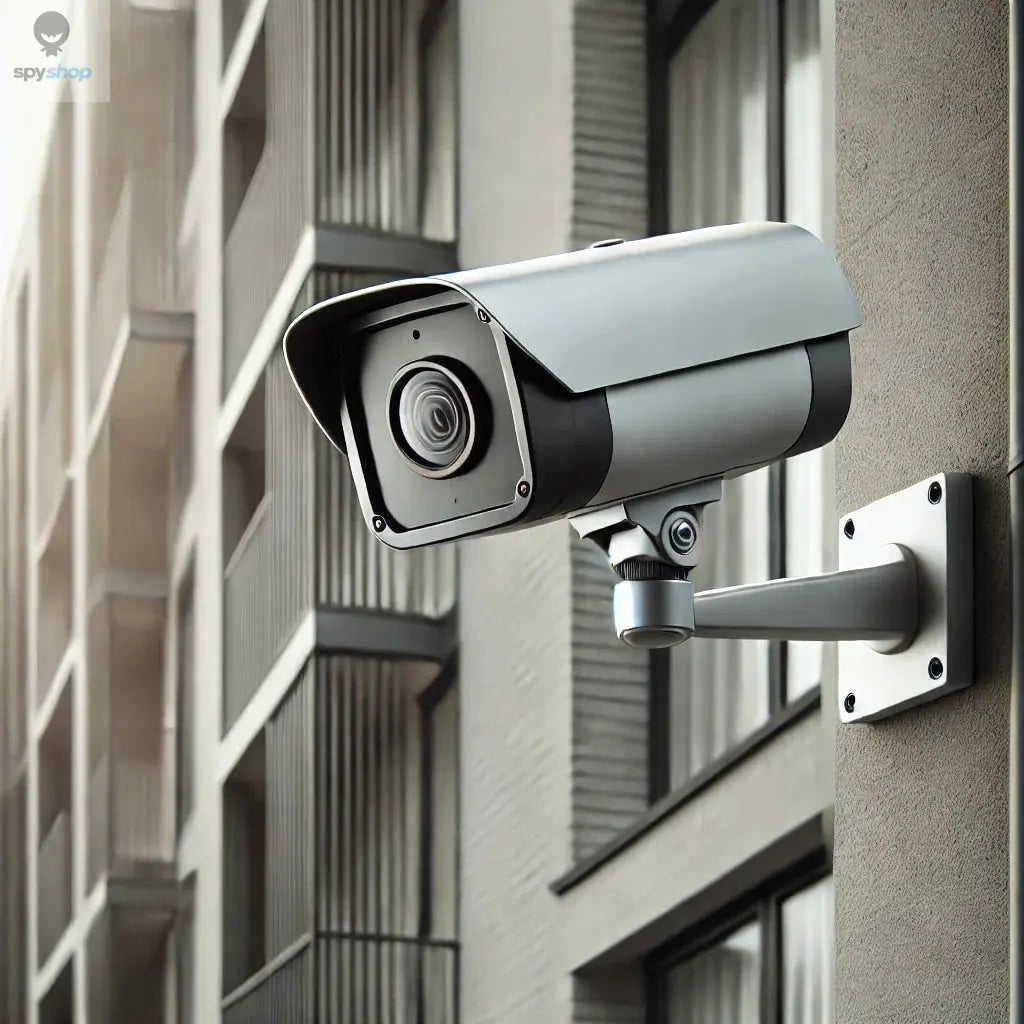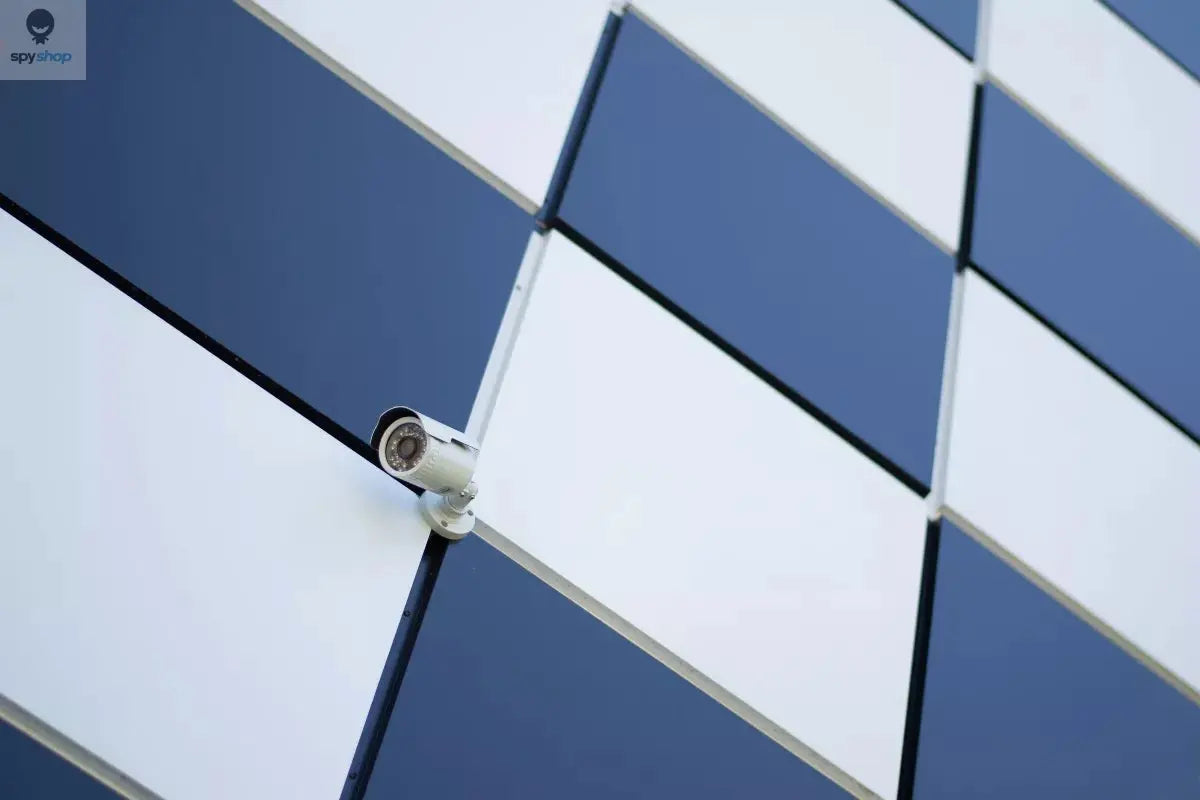
Can a Neighbor Legally Point a Surveillance Camera at My House? #PrivacyMatters #HomeSecurity
Can a Neighbor Legally Point a Surveillance Camera at My House?
Having neighbors comes with both advantages and challenges. While a close-knit community can be supportive and beneficial, the presence of surveillance cameras can sometimes create concerns about privacy. If a neighbor installs security cameras around their property, you may wonder whether their cameras are infringing on your personal space. This guide explains the legalities of home surveillance and how to handle privacy concerns effectively.
What Are the Legal Implications? #KnowYourRights
Property owners have the legal right to install security cameras on their premises to deter crime and protect their assets. However, certain conditions apply:
-
Public vs. Private Spaces
-
If a neighbor’s camera captures footage of your front yard, driveway, or house exterior, it is generally legal, as these areas are considered public spaces.
-
Surveillance inside your home, fenced backyard, or other private spaces without consent may violate privacy laws.
-
-
GDPR and Data Protection Laws
-
In the UK and EU, home security cameras capturing areas beyond the homeowner’s property fall under the General Data Protection Regulation (GDPR) and the Data Protection Act 2018 (DPA).
-
You have the right to request footage recorded of your property.
-
Security camera owners must place visible signage alerting others that recording is taking place.
-
Open Communication with Neighbors #RespectBoundaries
If you have concerns about a neighbor’s surveillance camera, an open and friendly conversation can resolve potential issues. Ask questions such as:
-
Why was the camera installed?
-
Often, cameras are positioned to deter crime, not to spy on neighbors.
-
-
What areas does the camera capture?
-
If the footage includes parts of your private property, request that they adjust the angle to avoid unnecessary surveillance.
-
-
Are they following legal guidelines?
-
Security footage should only be collected for legitimate reasons, and recordings should not exceed the necessary scope.
-
Security Camera Guidelines for Homeowners #LegalCompliance
To comply with recording laws, homeowners should:
-
Use Cameras for Security Purposes Only
-
A camera capturing a neighbor’s private spaces unnecessarily could be deemed invasive.
-
-
Minimize Captured Footage
-
Footage should only include areas essential for security, such as entryways and perimeters.
-
-
Limit Retention Periods
-
Video recordings should be stored for no longer than 30 days, after which they must be deleted unless required for legal reasons.
-
-
Grant Access to Footage Upon Request
-
If requested, homeowners must provide recordings that contain a neighbor’s property. If refusal occurs without legal justification, the affected party may pursue legal action.
-
What If a Neighbor Violates Surveillance Laws? #ProtectYourPrivacy
If a neighbor fails to comply with privacy laws, action can be taken through the Information Commissioner’s Office (ICO) or relevant local authorities. Possible consequences include:
-
Fines: The ICO may impose monetary penalties for unlawful surveillance practices.
-
Legal Orders: The court may order the removal or repositioning of cameras violating privacy rights.
-
Formal Complaints: Individuals concerned about excessive surveillance can file an official complaint with local privacy regulators.
Conclusion: Balancing Security and Privacy #NeighborhoodSafety
While neighbors have the right to protect their homes with surveillance cameras, they must do so in a way that respects privacy laws. If you suspect a neighbor’s camera is intruding on your private space, open communication is the best first step. If the issue persists, legal avenues exist to ensure compliance with privacy regulations. Understanding your rights helps create a safer and more respectful community for everyone.
Understanding Surveillance Camera Laws
When it comes to surveillance cameras, understanding the laws can be tricky. Privacy laws vary by state, but generally, a neighbor can install a surveillance camera that captures your property as long as it is not invading your privacy. This means that if their camera merely views your yard without focusing on private areas, they are usually within their legal rights. However, every case can be different, so knowing local regulations is essential.
Your Privacy Rights
Privacy is a significant concern when it comes to surveillance cameras. You have the right to enjoy your property without feeling watched. In most states, you can argue that a neighbor's camera is an invasion of privacy if it captures intimate or private areas of your property. This includes areas such as windows, backyards, or pools. If you feel your privacy is being violated, consider discussing this directly with your neighbor first.
What to Do if You Feel Uncomfortable
If your neighbor's camera makes you uncomfortable, it’s important to take action. Start by talking to them politely about your concerns. If a conversation doesn’t work, familiarize yourself with your local laws about surveillance. You may want to contact law enforcement or seek legal advice if you believe the camera is violating your privacy rights. Always prioritize open communication to resolve issues amicably.
Understanding Surveillance Camera Laws
When it comes to surveillance cameras, understanding the laws can be tricky. Privacy laws vary by state, but generally, a neighbor can install a surveillance camera that captures your property as long as it is not invading your privacy. This means that if their camera merely views your yard without focusing on private areas, they are usually within their legal rights. However, every case can be different, so knowing local regulations is essential.
Your Privacy Rights
Privacy is a significant concern when it comes to surveillance cameras. You have the right to enjoy your property without feeling watched. In most states, you can argue that a neighbor's camera is an invasion of privacy if it captures intimate or private areas of your property. This includes areas such as windows, backyards, or pools. If you feel your privacy is being violated, consider discussing this directly with your neighbor first.
What to Do if You Feel Uncomfortable
If your neighbor's camera makes you uncomfortable, it’s important to take action. Start by talking to them politely about your concerns. If a conversation doesn’t work, familiarize yourself with your local laws about surveillance. You may want to contact law enforcement or seek legal advice if you believe the camera is violating your privacy rights. Always prioritize open communication to resolve issues amicably.
Understanding Surveillance Camera Laws
When it comes to surveillance cameras, understanding the laws can be tricky. Privacy laws vary by state, but generally, a neighbor can install a surveillance camera that captures your property as long as it is not invading your privacy. This means that if their camera merely views your yard without focusing on private areas, they are usually within their legal rights. However, every case can be different, so knowing local regulations is essential.
Your Privacy Rights
Privacy is a significant concern when it comes to surveillance cameras. You have the right to enjoy your property without feeling watched. In most states, you can argue that a neighbor's camera is an invasion of privacy if it captures intimate or private areas of your property. This includes areas such as windows, backyards, or pools. If you feel your privacy is being violated, consider discussing this directly with your neighbor first.
What to Do if You Feel Uncomfortable
If your neighbor's camera makes you uncomfortable, it’s important to take action. Start by talking to them politely about your concerns. If a conversation doesn’t work, familiarize yourself with your local laws about surveillance. You may want to contact law enforcement or seek legal advice if you believe the camera is violating your privacy rights. Always prioritize open communication to resolve issues amicably.
Understanding Surveillance Camera Laws
When it comes to surveillance cameras, understanding the laws can be tricky. Privacy laws vary by state, but generally, a neighbor can install a surveillance camera that captures your property as long as it is not invading your privacy. This means that if their camera merely views your yard without focusing on private areas, they are usually within their legal rights. However, every case can be different, so knowing local regulations is essential.
Your Privacy Rights
Privacy is a significant concern when it comes to surveillance cameras. You have the right to enjoy your property without feeling watched. In most states, you can argue that a neighbor's camera is an invasion of privacy if it captures intimate or private areas of your property. This includes areas such as windows, backyards, or pools. If you feel your privacy is being violated, consider discussing this directly with your neighbor first.
What to Do if You Feel Uncomfortable
If your neighbor's camera makes you uncomfortable, it’s important to take action. Start by talking to them politely about your concerns. If a conversation doesn’t work, familiarize yourself with your local laws about surveillance. You may want to contact law enforcement or seek legal advice if you believe the camera is violating your privacy rights. Always prioritize open communication to resolve issues amicably.


